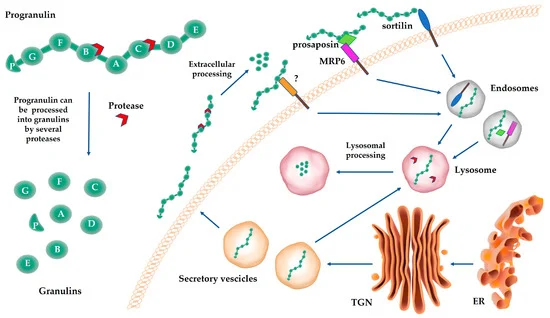
New Review Reveals the Critical Role of Progranulin in Cancer
- Post & News
- admin
- April 6, 2023
Originally published in Newswise
A recent review paper published in the journal Cancers highlights the important role of the growth factor progranulin in the initiation and progression of cancer.
Progranulin has been found to have a pro-tumorigenic role in cancer by promoting cancer cell proliferation, migration, invasiveness, anchorage-independent growth, and resistance to chemotherapy. In addition, progranulin regulates the tumor microenvironment, affects the function of cancer-associated fibroblasts, and modulates tumor immune surveillance. However, the molecular mechanisms of progranulin oncogenic function are not fully understood.
This review was recently published by researchers working with the Sbarro Health Research Organization (SHRO) and the Sbarro Institute for Cancer Research and Molecular Medicine, at Temple University, led by Founder and Director Antonio Giordano, M.D. Ph.D.
The paper, Progranulin Oncogenic Network in Solid Tumors, was written by Elisa Ventura, Ph.D., and Andrea Morrione, Ph.D., Temple University, with co-authors including Dr. Giordano and others at Thomas Jefferson University and universities in Milan and Catania.
The authors provide a detailed overview of what is currently known about the function of progranulin in tumors, with a focus on its molecular mechanisms of action and regulation. Understanding the details of progranulin function can potentially bring the identification of novel targets for therapy in cancer.
This work covers the current literature supporting the notion that progranulin action is critical in the initiation and progression of mesothelioma. Further study of progranulin could lead to the development of new therapeutic strategies targeting progranulin in mesothelioma and other cancers.
“This paper is significant because it highlights the critical role of progranulin in the development of cancer and provides valuable insights into the possibility of progranulin as a novel target for cancer therapy,” says Giordano. With further research, progranulin could potentially be used as a diagnostic and prognostic marker for various cancer types.
